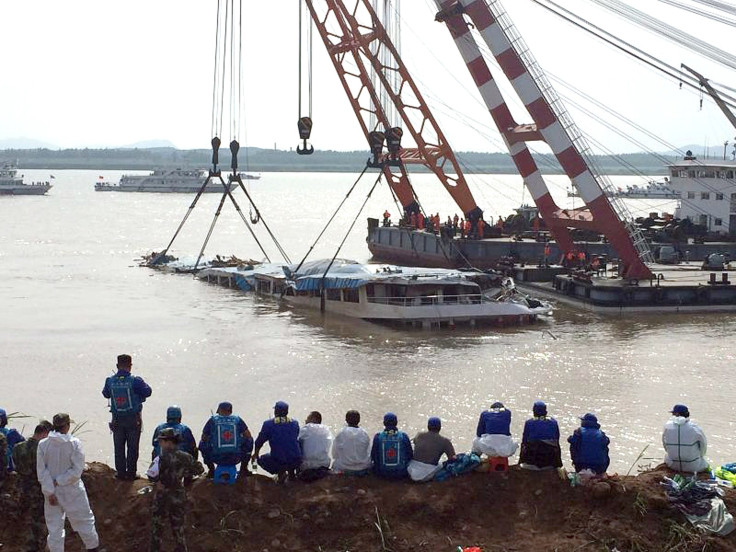Yangtze River Ship Capsize: Bad Weather, Crew's Failure Caused Sinking That Killed 442, Chinese Authorities Say

Chinese authorities blamed bad weather and failures in judgment by crew members for the cruise ship capsize in the Yangtze River that killed 442 people on June 1. The Eastern Star ship was carrying elderly tourists from Nanjing in China's east upstream to Chongqing city when it sank, leaving only 12 survivors.
An official report released Wednesday and filed by a State Council investigation team said, according to state-run Xinhua news agency, that the capsize was "an extraordinarily serious disaster" and was caused due to strong winds and heavy rains accompanied by a downburst that led to the capsize. The report added that winds escalated rapidly from level 12 to 13 on the Beaufort scale, amid the 94.4 millimeters per hour rainfall, causing the ship to sink within a minute.
The report also said, according to Xinhua, that while the captain took measures to stabilize the ship, the winds were over double the strength that the ship could handle.
Passengers' relatives had initially questioned if the Eastern Star should have set sail despite a weather warning. Meteorologist and investigation team member Xu Xiangde was quoted in state-run newspapers as saying that limited radar coverage on the Yangtze was also a factor in the sinking as forecasters were not able to determine the impact of the weather threat and inform the captain on time, the Associated Press (AP) reported.
According to the AP report, the investigation team said that 36 local government and Communist Party officials, along with seven people from the shipping company, should face punishment for weak administration. Penalties could range from demotions to being terminated from their jobs. Investigators are also looking into modifications that were allegedly made to the ship.
Among the seven people named by the investigation team was the captain of the ship, Zhang Shunwen, and the officer in charge, who died in the incident. The probe said that they did not respond effectively to the emergency. The investigation team recommended that Zhang’s license be revoked and his contract be terminated. The report also recommended that his case should be investigated further to decide if he should face criminal charges.
Investigators are currently question Zhang, who was arrested after being rescued from the ship, on why he decided to continue with the voyage in the storm.
"If you blame it on the weather, why were the other two boats that were also traveling at that time safe? Why was this boat modified three times before? Were the modifications done properly?" Qin Meiping, who lost her 73-year-old father and 49-year-old brother, said, according to AP, adding: "We are not experts, but is the report by the experts the truth?"
Qin also said: "It will happen again if people do not face the truth and don't admit there are management problems."
In the past year, several people have been killed in accidents that have been blamed on mismanagement. On New Year's Eve 2014, a stampede in Shanghai killed 36 people. In August, explosions at a chemical warehouse in Tianjin killed 173 people. The latest incident was in December when a landslip at a construction waste mountain in Shenzhen killing one and trapped several others.
© Copyright IBTimes 2024. All rights reserved.












